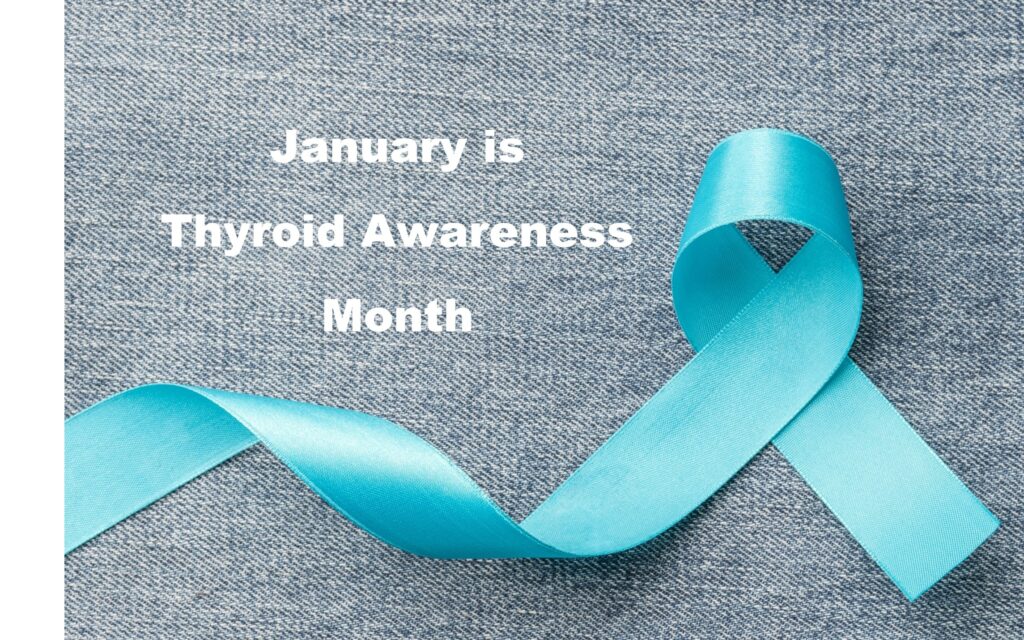January is Thyroid Awareness Month, aimed at raising awareness and providing education about thyroid health and diseases. It’s a great reminder to explore some of the functions of the thyroid and how an imbalance can be tied to weight issues.

The thyroid is a gland in the neck that produces and regulates hormones important to many bodily functions, such as metabolism, which is how the body changes food into energy. It also impacts heart rate, weight, body temperature, cholesterol levels and, in women, menstrual cycles.
More than 12 percent of Americans will develop a thyroid condition in their lifetime, and up to 60 percent of people with thyroid disease are not aware that they have it. Anyone can develop thyroid issues, but women are five to eight times more likely than men to do so.
With hypothyroidism, the thyroid does not produce enough hormones – sometimes we call it underactive thyroid. When the body doesn’t produce enough thyroid hormones, patients can experience fatigue, weight gain, forgetfulness and depression.
An article by the American Thyroid Association states: “It has been appreciated for a very long time that there is a complex relationship between thyroid disease, body weight and metabolism.” People with an underactive thyroid understand this relationship all too well as they sometimes struggle to lose weight.
If you are struggling, you should discuss the possibility of thyroid issues with your doctor. Most thyroid conditions can be treated with medication. If you need to lose weight, don’t be distressed! Prioritize healthy habits such as getting enough sleep, drinking plenty of water and exercising. Some underactive thyroid patients find success with tweaks to their diet, such as limiting carbohydrates. GIA 180 offers guided weight loss solutions with a trained coach to help you lose weight – even while navigating thyroid or other health issues. Contact GIA at 865-588-5121 for more information.


